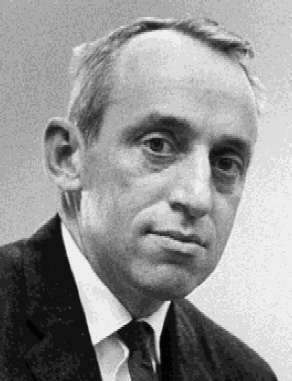
James Tobin was an American economist who served on the Council of Economic Advisers and consulted with the Board of Governors of the Federal Reserve System, and taught at Harvard and Yale Universities. He contributed to the development of key ideas in the Keynesian economics of his generation and advocated government intervention in particular to stabilize output and avoid recessions. His academic work included pioneering contributions to the study of investment, monetary and fiscal policy and financial markets. He also proposed an econometric model for censored dependent variables, the well-known tobit model.
Trade can be a key factor in economic development. The prudent use of trade can boost a country's development and create absolute gains for the trading partners involved. Trade has been touted as an important tool in the path to development by prominent economists. However trade may not be a panacea for development as important questions surrounding how free trade really is and the harm trade can cause domestic infant industries to come into play.

Marcos Prado Troyjo is a Brazilian political economist, entrepreneur, social scientist, diplomat and writer. He is currently a Transformational Leadership Fellow at the University of Oxford’s Blavatnik School of Government and a Distinguished Fellow at INSEAD’s Hoffmann Global Institute for Business and Society.
The Multilateral Agreement on Investment (MAI) was a draft agreement negotiated in secret between members of the Organisation for Economic Co-operation and Development (OECD) between 1995 and 1998. It sought to establish a new body of universal investment laws that would grant corporations unconditional rights to engage in financial operations around the world, without any regard to national laws and citizens' rights. The draft gave corporations a right to sue governments if national health, labor or environment legislation threatened their interests. When its draft became public in 1997, it drew widespread criticism from civil society groups and developing countries, particularly over the possibility that the agreement would make it difficult to regulate foreign investors. After an intense global campaign was waged against the MAI by the treaty's critics, the host nation France announced in October 1998 that it would not support the agreement, effectively preventing its adoption due to the OECD's consensus procedures.
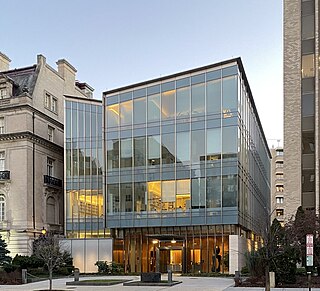
The Peterson Institute for International Economics (PIIE), known until 2006 as the Institute for International Economics (IIE), is an American think tank based in Washington, D.C. It was founded by C. Fred Bergsten in 1981 and has been led by Adam S. Posen since 2013. PIIE conducts research, provides policy recommendations, and publishes books and articles on a wide range of topics related to the US economy and international economics.
Lawrence Berle Krause is an American economist.
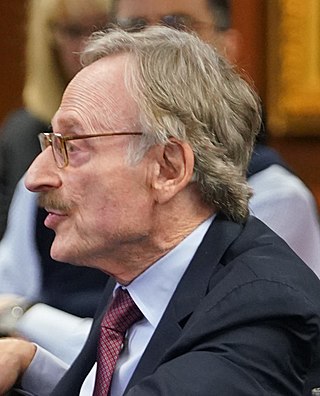
Michael Jay Boskin is the T. M. Friedman Professor of Economics and senior fellow at Stanford University's Hoover Institution. He also is chief executive officer and president of Boskin & Co., an economic consulting company.

Mahmoud Mohieldin, is an economist with more than 30 years of experience in international finance and development. He is the UN Climate Change High-Level Champion for Egypt. He is an Executive Director at the International Monetary Fund. He has been the United Nations Special Envoy on Financing the 2030 Sustainable Development Agenda since February 2020. He was the Minister of Investment of Egypt from 2004-2010, and most recently, served as the World Bank Group Senior Vice President for the 2030 Development Agenda, United Nations Relations and Partnerships. His roles at the World Bank also included Managing Director, responsible for Human Development, Sustainable Development, Poverty Reduction and Economic Management, Finance and Private Sector Development, and the World Bank Institute; World Bank President's Special Envoy on the Millennium Development Goals (MDGs), the Post-2015 Development Agenda, and Financing for Development; and Corporate Secretary and Executive Secretary to the Development Committee of the World Bank Group's Board of Governors. Dr Mohieldin also served on several Boards of Directors in the Central Bank of Egypt and the corporate sector. He was a member of the Commission on Growth and Development and was selected for the Young Global Leader of the World Economic Forum in 2005. His professional experience extends into the academic arena as a Professor of Economics and Finance at the Faculty of Economics and Political Science, Cairo University and as a Visiting Professor at several renowned Universities in Egypt, Korea, the UAE, the UK and the USA. He is a member of the International Advisory Board of Durham University Business School. He also holds leading positions in national, regional and international research centres and associations. He has authored numerous publications and articles in leading journals in the fields of economics, finance and development.

Deindustrialization is a process of social and economic change caused by the removal or reduction of industrial capacity or activity in a country or region, especially of heavy industry or manufacturing industry.
David Bruce Audretsch is an American economist. He is a distinguished professor at the School of Public and Environmental Affairs (SPEA) at Indiana University and also serves as director of the SPEA International Office, Ameritech Chair of Economic Development, and director of SPEA's Institute for Development Strategies (IDS). He is co-founder and co-editor of Small Business Economics: An Entrepreneurship Journal, and also works as a consultant to the United Nations, the World Bank, the OECD, the EU Commission, and the U.S. Department of State. He was the director of the Entrepreneurship, Growth and Public Policy Group at the Max Planck Institute of Economics in Germany from 2003 to 2009. Since 2020, he also serves as a distinguished professor in the Department of Innovation Management and Entrepreneurship at the University of Klagenfurt.
The Global Environment & Trade Study (GETS) was a non-profit research institute established in 1994 to study the complex linkages between international trade and environmental sustainability. GETS supported numerous research projects on the legal, economic, and ecological aspects of trade and environment.

Sebastián Edwards a member of the Edwards family is a Chilean economist, professor, speaker, and consultant. He is currently the Henry Ford II Professor of International Business Economics at the UCLA Anderson School of Management at the University of California, Los Angeles (UCLA). From 1993 until April 1996, he was the Chief Economist for the Latin America and Caribbean Region of the World Bank. He is also a research associate of the National Bureau of Economic Research (NBER), a member of the advisory board of Transnational Research Corporation and co-chairman of the Inter American Seminar on Economics (IASE). He is the Past President of the Latin American and Caribbean Economic Association (LACEA), an international professional association of economists with academic interests in Latin America and the Caribbean region. He was a member of the Scientific Advisory Council of the Kiel Institute of World Economics, Kiel-Germany. He is a member of California Governor Arnold Schwarzenegger's Council of Economic Advisors.

Jason Furman is an American economist and professor at Harvard University's John F. Kennedy School of Government and a nonresident senior fellow at the Peterson Institute for International Economics. On June 10, 2013, Furman was named by President Barack Obama as chair of the Council of Economic Advisers (CEA). Furman has also served as the deputy director of the U.S. National Economic Council, which followed his role as an advisor for the Barack Obama 2008 presidential campaign.

Linda J. Bilmes is an American public policy expert who is the Daniel Patrick Moynihan Senior Lecturer Chair in Public Policy and Public Finance at Harvard University. She is a faculty member at the Harvard Kennedy School where she teaches public policy, budgeting and public finance. She served as Assistant Secretary and Chief Financial Officer of the US Department of Commerce during the presidency of Bill Clinton.
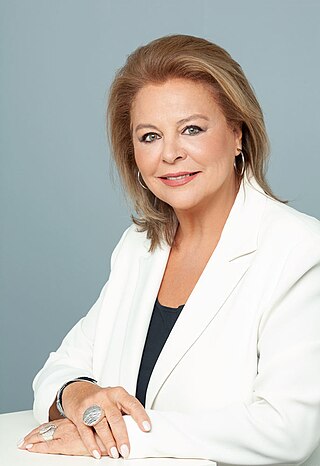
Louka Katseli is a Greek economist and politician. Today, she is Professor Emeritus of the National and Kapodistrian University of Athens, Chair of the National Bank of Greece in Cyprus, CEO of Rightholders Cooperative EDEM, Vice President of the African Capacity Building Foundation (ACBF), member of the Independent Commission for Sustainable Equality, Progressive Alliance of Socialists and Democrats - S&D, and business consultant for enterprises and organizations in Greece and Europe.

The Barcelona Development Agenda is a statement of development principles formulated as a response to the prevailing Washington Consensus development model. Resulting from the collaboration of economists from both developing and developed countries at the 2004 Universal Forum of Cultures in Barcelona, Spain, the Barcelona Development Agenda outlines seven lessons learned from previous policy failures and successes, and presents them as priorities for future economic reforms. The principles emphasize a balance of market and government economic roles, flexible economic tools, and an increased role for sustainability and equity in governance.
Francis Michel Bator was a Hungarian-American economist and educator. He was a professor emeritus at Harvard Kennedy School of political economy. He was born in Budapest, Hungary. Bator attended the Massachusetts Institute of Technology and earned a Ph.D. in 1956. He was Deputy National Security Advisor of the United States from 1965 to 1967. He was also a Special Assistant to President Lyndon B. Johnson.
Harald Bernard Malmgren is a scholar, ambassador, and international negotiator who has been senior aide to US Presidents John F. Kennedy, Lyndon B. Johnson, Richard Nixon, and Gerald Ford, and to US Senators Abraham A. Ribicoff and Russell B. Long, United States Senate Committee on Finance. He has acted as an advisor to many foreign leaders and CEOs of financial institutions and corporate businesses and has been a frequent author of articles and papers on global economic, political, and security affairs.
Irving B. Kravis was an American economist, best known for his work on international price comparisons, leading to the first version of the Penn World Table.
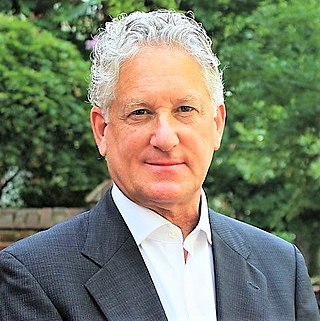
Harry Gerard Broadman is an international investment executive and global business strategist; an authority on trade, antitrust, corporate governance, sustainability, and innovation; and a non-executive corporate director. He is a Partner, managing director, and Chair of the Emerging Markets Practice and Chair of the Committee on Foreign Investment in the United States (CFIUS) Practice at the Berkeley Research Group LLC and on the faculty of Johns Hopkins University.













